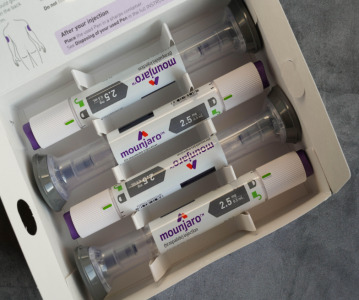Merck receives positive CHMP opinion for Zepatier (elbasvir and grazoprevir) in the EU

Product launches estimated to begin in the fourth quarter of 2016 or the first quarter of 2017.
Merck (MSD) has announced that the Committee for Medicinal Products for Human Use (CHMP) of the European Medicines Agency (EMA) has adopted a positive opinion recommending approval of Zepatier (elbasvir and grazoprevir), an investigational, once daily, fixed-dose combination tablet for the treatment of chronic hepatitis C virus (HCV) in adult patients. The CHMP positive opinion will be reviewed by the European Commission. If the European Commission affirms the CHMP opinion, it will grant a centralized marketing authorization with unified labeling that is valid in the 28 countries that are members of the EU, as well as European Economic Area members, Iceland, Liechtenstein and Norway. Merck anticipates that the European Commission decision will be made in mid-2016. The company continues to work to achieve manufacturing readiness to supply the EU market, with product launches estimated to begin in the fourth quarter of 2016 or the first quarter of 2017.
The FDA and Health Canada approved Zepatier 50 mg/100 mg tablets in January 2016. In the US, Zepatier is indicated for the treatment of adult patients with chronic HCV genotype 1 or 4 infection, with or without ribavirin (RBV). “We are pleased with the CHMP’s positive opinion recommending the marketing authorization of Zepatier in the EU, which marks an important step forward in the European regulatory process,” said Dr Roy Baynes, senior vice president and head of clinical development, Merck Research Laboratories. “Our application was based on the findings from a broad clinical development program evaluating the efficacy and safety of Zepatier across diverse populations of patients with chronic hepatitis C, including patients with compensated cirrhosis and those with stage 4 or 5 chronic kidney disease.”
Related News
-
News The next 15 drugs up for negotiation with Medicare include several blockbusters
By now, everyone is quite familiar with the drug price negotiations taking place between drug companies and the Centres for Medicare & Medicaid Services (CMS) in the USA as part of measures being taken to reduce the cost of drugs for patients, to make ... -
News PSCI Welcomes Delpharm, Samsung Biologics, and Suven as First Supplier Partners
The pharmaceutical industry continues to evolve with an increasing focus on responsible sourcing, sustainability, and collaboration across the supply chain. Under a new model to recognise suppliers within the pharmaceutical and healthcare industry that... -
News Drug prices agreed upon as part of the US Inflation Reduction Act
The Inflation Reduction Act brought into constitution by the Biden administation in 2022, which proposed a drug price negotiation between the government and pharmaceutical companies, has reached it's first agreement. -
News Eisai Alzheimer’s drug authorised in UK but still faces obstacles
In partnership with BioArctic AB, pharmaceutical company Eisai has been granted Marketing Authorisation by the Medicines and Healthcare products Regulatory Agency (MHRA) for its Alzheimer’s disease drug product Leqembi. -
News Eli Lilly's weight loss drugs removed from the FDA's shortage list
The US FDA have recently updated their drug shortage list. The recently released list shows that all dosage forms of Eli Lilly's weight-loss drug Zepbound and their diabetes drug Mounjaro are now available. -
News Global advancements in the diagnosis and treatment of rare diseases: Rare Disease Day 2024
Rare Diseases Day is celebrated on the 29th February 2024 and represents the plight of rare disease patients to gain diagnosis and access to suitable treatment. -
News Pharmaceutical industry supports COP28 health stance in joint statement
As COP28 takes place over this week in Dubai, UAE, several bodies in the pharmaceutical and health industries have come together to announce support of key movements in sustainability in the sector, and to recognise sustainability as a health issue.&nb... -
News Biden backs Cold-War measures to shore-up medical supply chains
In a recent strategy to combat rising inflation and the cost of living crisis, President Joe Biden has invoked a Cold War-era act to increase investment in a selection of medicines and supplies.
Recently Visited
Position your company at the heart of the global Pharma industry with a CPHI Online membership
-
Your products and solutions visible to thousands of visitors within the largest Pharma marketplace
-
Generate high-quality, engaged leads for your business, all year round
-
Promote your business as the industry’s thought-leader by hosting your reports, brochures and videos within your profile
-
Your company’s profile boosted at all participating CPHI events
-
An easy-to-use platform with a detailed dashboard showing your leads and performance



.png)



